Following an expansive discography of LPs on Warp from 2001 to 2017, the latest release from acclaimed British producer Clark sees him self-releasing an album for the first time on his own label Throttle Records. Titled Kiri Variations the fourteen-track album is an extension on his score work he produced for BAFTA-nominated TV drama Kiri back in 2018. Having delved into world of scoring for film and TV back in 2016 with the soundtrack for crime-thriller The Last Panthers, he’s taken to the versatility of this type of work with ease. Clark’s music, even if sparingly, has always had quite emotive themes and on Kiri, his use of piano, harpsichord, clarinet, strings, electronics and his own voice paints a wonderfully melancholic narrative. We caught up with Clark to discuss the work put into Kiri Variations, his performance at the Royal Albert Hall, the transitional two second ‘holy points’ in his productions and how producing music for horror films is one of the most satisfying things you could ever do as a producer. His Truancy Volume, a sonic extension of his recent scores, is a riveting tapestry of organic instrumentation. Incredibly coherent yet polarising at points, his embrace of recent acoustic sources can be heard throughout. Shuttling through haunting modern classical and folktronica to the trance-induced productions of Lorenzo Senni, it’s an overlap of two circles both firing up emotion. As Clark puts himself – “We live in a post-genre era, it’s good to take advantage of that.”
Hey Chris, just want to say thank you for doing this mix for us, you’ve been one of my favourite producers for a long time so really amazing to have you on for our series. So I thought with the new album original starting out as a score, we’d touch base on some of your previous film/television work for a second because like the Last Panthers album it seems both are almost a re-sculpted suite of music, built from the body of work composed for these two shows. Can you tell us a bit about the process behind The Last Panthers, as being your first full-length outing for music in TV it must have guided you through a few learning curves or techniques for later on? “Hmm actually a lot of the music on Panthers was written from an original dialogue I had with Johan Renck. He was basically just saying “more satanic” until I literally ended up with almost pure white noise. It was about 800/10 Satan I dialled it back by about 795, it’s like 50% evil, there is darkness in the album but it was finding the melancholy that took a while. I always remember the Panthers time fondly, it was marked by quite a clear decision to get into recording strings properly, DIY-style. So much of that OST is based on the joys of using contact mics a lot, passed through a mixing desk with tons of guitar pedals on it. It was a rediscovery of the physicality of music making, This tangible thing you can touch, bite into. The music editor for Last Panthers, his cues were super helpful too, I would never use an editor like that now. Ideally I like to decide where the cues should go but you need to gain peoples trust first to do that, it’s an incremental thing project to project. it comes as you prove yourself. The album you hear is just the tracks in their raw entirety.”
You’ve mentioned that the TV commission for Kiri was a prominent spark for new approaches. Can you tell us a little bit about those? “It was like this: Who are these people asking me to score something mm ah he seems really sound hmm this cello is ace it has a built in spring reverb ok just sing some vowels into a laptop mic fuck me that cello sounds well nice right ok so expensive mic on cello posh signal path crap laptop mic on vocals detune it, sounds nice.bash out 4 then send them 4 tracks by tomorrow morning. Then spend about 4 months finessing 2 of the best ones :D”
I heard there were a few curveballs from the director and you throwing a few back yourself whilst scoring the show. What did the middle ground entail? “Oh not really…he’s very sound and clear about what he wants. Working with people with clear ideas is essential. Knowing what it ISN’T is the best place to start. And not getting over laboured notes. Sometimes one word, or phrase is all you need. Less is more. Euros really liked my track title “Coffin Knocker”, it just triggers ideas really efficiently. In fact a lot of the album came from that one title. It was moving, funny, macabre all in one.”
Not a question but just want to say think ‘Bench’ is one of my favourite pieces from the album, there’s this amazing small line that comes in at 1.19 that is just sublime that I’ve been replaying over and over. I was watching the Spitfire Video alongside doing the research and you mention how you approached the cello type instrument you bought from a producer’s angle. “Ah thanks! It was a real find that cello.”
In an interview with Resident Advisor you mention how time seems to just speed up as soon as you release an album. With the actual TV show you did the score for airing at the very beginning of last year, how does the Variations part fit on the timeline and has it had the same feeling? “The dance of it, the negotiation of it is to make it somehow connect to the spirit of the show, like an alternate reading of it. I wasn’t going to be putting something like “Beg” from Turning Dragon on Kiri for instance. Having that initial springboard with a director to score something, allowing someone else’s input in is just a lovely nourishing thing to be a part of, and it works well as a to and fro between scoring and solo work. I’m not having any of this “oh but that’s a compromise working with other people the only true art comes from the masturbatory solipsism of the lone mind in a vacuum”. People do actually still live by that myth. I’m not really an either/or type person. A few people I know are rather sceptical of the possibility of studio albums and film OST albums existing alongside each other. I just kind of think ‘hmmm you’re missing a trick here”. It’s all good for me though, cause it means I can just sort it all out, clean up and carry on pushing forward into this realm. I’d also like to make my own film one day. This is good practice.
“In general I’m noticing a move to less “scorey” score in the few film things I like. Which is ace. The music in Euphoria is pretty amazing. It never feels scorey. It just feels like decent tracks that complement the mood of the film. There’s something a bit desperate and unconfident about overly scored Mickey Mouse music in films, like people are scared the acting isn’t good enough. Not every line of the script needs a tension pulse underneath it. One of my favourite bits of score ever is the chase scene in the 2nd episode of The Shadow Line. Haunting sad guitar music over this high octane chase. Those decisions are just immortal imo. Well done who ever did that! I’m hopeless with names. It’s always nice when a director knows when to dial it back. Although horror definitely benefits from that heavy use of sound design, it’s so awesomely fun, and baked into the genre.”
You’ve mentioned that you want people to listen to Kiri Variations in the same way they would read a set of Roald Dahl short stories. Can you elaborate on this for us? “I just think of the tracks as quite spiky and concise in a way, even though the material is pretty emotional. There’s an economy of form there that I feel I’m continually searching for. Sometimes it’s elusive, sometimes I want more dense webs of structure to fall into, but Kiri is more about this gradual skeletal reveal that grows more seductive on repeat listens. Like, “Forebode Knocker” is technically just…it’s like a kid trying to exorcise the terror inside. All of my music depends on a strong thread running through it. Maybe that’s why it’s suited to film. But if you wrote down the notes or scale or whatever of “Forebode” it would be nonsense. It sets itself against a certain orthodoxy, it’s subtle, but it’s there, to me it’s evocative. At the same time I don’t want it to be so unfamiliar that people just forget it. Music that’s so advanced and technical that people can’t even remember it. Music that’s so good you can’t even hear it. I like flirting with familiar forms. Familiar form but twisted up through unusual textures, structures, exposed to unusual weather, which I think we can all relate to at the moment!”
You’ve also talked about how some of the field recordings in the risers in “Cannibal Homecoming” are over 20 years old, from dictaphone tapes you didn’t even know you had. It must be quite personal and nostalgic finding a perfect place for them in this manner, how do field recordings slot into the way you work and how did you make them work for Kiki Variations? “Pure instinct, rummaging the archives in hope of finding something. I took an old tape player on holiday with me and put it in the basket of my bike when me and my wife were cycling around the coast of Sweden. I sort of can’t believe that sentence, it sounds like some sort of lifestyle marketing of vintage….it almost sounds a bit Paltrow, sorry about that. But that did actually happen, it was a lovely holiday. I got some ace bird song and sea recordings.”
In October, you also mentioned how you didn’t want to listen to much electronic music as you didn’t want to lose focus on playing and recording the piano. How do these stages come about? Are they influenced in times where you’re possibly writing for TV where you have to be occasionally more subtle or just more come and go? “It’s all pretty chaotic, working on several things at the same time. or at least the same day. I like it that way. I’m constantly doubting received wisdom of what a pianist should do. Whilst still learning piano.. Although I’m buckling down on learning more formal proper notation/orchestration at the moment, just because I like having a short hand with musicians, seems bit arrogant to walk into a recording situation with your eyes closed just being a “feel” guy whilst they struggle to know exactly what “feel” you want. There are perils around being an idiot savant. that old pernicious punk cliche of “if I learn something properly maybe I will lose my special magic” I would argue that the magic can’t be that special if it can’t withstand bit of training. It used to be cool to study music, even if that meant learning formally from the past. In the sixties jazz musicians would pride themselves on knowing their onions – I just love that. Some of my heroes are from that era, for sure.
“But writing “proper notes n that” can also sometimes be put on a bit of a silver platter, especially in establishment classical world. This thing of “the real music stuff”, you know, the old proper music stuff made by clever expensive men that could write the actual notes on paper cause they were so clever, and treat the musicians badly like servants. I hope there will come a day where people from this world realise that writing potent music on a computer isn’t trivial or easy. I always just think if it’s that easy then by all means have a go! I look forward to casting my beady critical ear on the results.
Saying that, the upcoming movie Daniel Isn’t Real that you’ve also done the score for looks like it may be quite a far cry in terms of the sounds you’ve approached for The Last Panthers and Kiri. With it being produced by the same people who did Mandy last year and described as a psychological body horror, what can you tell us about your working role in producing the score? “Producing music for a horror film is one of the most satisfying things you could ever do, musically. You get to make the most fiendish slabs of noise. I wrote a track in a dream state for it in Melbourne. Where I just sat in front of a mic and layered up about 20 tracks of discordant viola. If you get turned on by ugly, but elegantly captured atonal noise then horror is the one. I imagine it’s a similar pleasure to what people who make gore body effects get off on. Also the director Adam Mortimer and producer, Daniel Noah were a blast, total music heads, obsessive.”
In an interview with Inverted Audio you talk about how your work is a little less compulsive these days and a bit more planned. What kind of preparation, research and discussions go into getting things planned for these movies and TV scores? Is there as much back and forth as I imagine? “Discussion about scoring changes so much from film to film. You can never expect them to be the same, and I try and honour that when embarking on a new project. That’s what I like about it, it’s volatile. Human potential is this volatile unpredictable thing that you need to grapple with, you can’t go in with fixed ideas.”
I was really fascinated when reading an old interview where you mention how you take ages on the transition parts, or ‘holy points’ as you called them, in your productions, sometimes spending two hours or more on two seconds yet finishing the whole track after that comes quite quickly. What goes into those two hours usually and do you remember any particular examples from your discography you care to breakdown? “I think it’s often purely a timing thing, nudging objects around tiny amounts. The drastic shifts of mood I’ve come to adopt are just all a bit much sometimes, I’m really aware of it, more than anyone else, believe me…. but if you come out on the right side of that you just have these peak ecstatic moments. It’s high-risk music. It’s in an unholy competition with just being a drab minimalist. Both minimalism and maximalism done well can be super rewarding, tantalising listening experiences. So I like to filter the best versions of that on to and chisel them into the records I choose to release.
“Again it’s not technical really, I don’t use any special software to do this. What I do have is terabytes of custom-made sounds to pull from from the last 20 years, things like looking for the perfect amount of condensation on a synth drone, it needs to feel humid but not soggy :D the tape hiss needs to bounce and pan a bit, stuff like that. the exact spread of the harmonics on reverb needs to be Lydian on the left channel clash with the glock. It’s like tuning an orchestra to me. Sometimes I’ll spend days on just one stem of say, the root note of a chord that I know in the future will be really useful for a transition, and then hey presto I just drag it in at the appropriate moment when I’m in the flow of writing.
“I quite often like to imagine what I’d do if I had unlimited technical ability. Would I make my drumming more finessed on “Herr Barr”? No way lol. I like to think of battles between incompatible urges in human nature being represented by music. On the one hand you have like, the great chess masters of Russian composition, hyper-rational music, completely intellectual, no technical limits. And then you have, Velvet Underground. “Venus in Furs” probably wouldn’t benefit from a middle 8 re-harmonised by Jacob Collier. The idea of a Grouper track being “professionally mixed with nice separation on the midrange” is eurgh, it makes me feel nauseous. But then, Kurt Cobain sacked his original drummer cause he wasn’t tight enough. I would argue that Kurt was a fiendish technical perfectionist. It’s just knowing exactly what you need to perfect.
“All the work I like is engaging in some sort of battle between unrefined instinct and sophisticated calculation. Technique should be invisible really. Shellac are a good example of this. The riffs are caveman-esque but the signal path is pure genius calculation. This battle between rational enlightened knowledge and the primitive spiritual, intuitive side of humans reminds me of Isaiah Berlin, a writer I’m very keen on, he’s so good at imagining himself into different mindsets. This elasticity sort of borders on schizophrenia sometimes, but if you can control and refine this back and forth then you can mine for gold. I guess it would be a “5” on the 1-5 of the openness scale of the 5 big traits of personality. Anyway, a lot of the work is calculating what I might need in future. Exactly the same with learning piano, it’s a universal principle really, I’m learning complex 10-note poly chords at the moment, it’s very slow, I’m writing them down on paper, it’s masochistically slow and deliberate work that is good for your ego, because you realise how out of your depth and naive you are in amongst certain frontiers of music.
“If you can swallow your pride and realise you’re not an expert in one area of it for a few hours a day then the growth and benefit is incalculable really, the scale of what you achieve just goes through the roof, but you need a long-form perspective on it, eg to know that in three years’ time with 2,000 hours more practice down the line I’ll be in a position to improvise manically with those poly chords, and with no rational mind on that at all, I’ll have gone beyond it, it will be kinetic. But I need to make the calculation of what I need to learn in order to make it pure instinct. It’s also realistic to not over do it in a few weeks. Like, I like some non-music-orientated time in the day, believe it or not, so I spend six-to-nine hours a day producing and get about three hours piano in a day. But even just that, over time, is monstrous, really. It’s a growth mindset of application more than anything to do with talent – this idea of unearthly rare talent can seem a bit folky and mystical sometimes, it’s so readily tied to such obviously crass marketing nowadays as well – “he’s a genius because he says he is. He’s even got his own brand of trainers!“
“I think it keeps people down, keeps people repressed, it makes me sad, everyone should be able to get involved. Bach believed there was a method where anyone could learn and enjoy how to play music, you could systematise and learn it, anyone could. What a lovely way to see it. Even if only to reject it. Anything that punctures the mystification process is valuable to me. But yea, I digress, lots of tracks also just pop out fully formed. But the sceptic critic in me has do 20 alternate versions. And then delete them all and go with the first one.”
With you also scoring for dance choreography, are there any boundaries or limitations from working across different mediums? “Not really. It’s good working with Melanie [Lane] because she has total non-producer ears although she is very musical. Everyone can be have access to expertise on music production now, I mean it’s really good on one level, but it’s making certain techniques that were once shocking and impressive slightly orthodox and boring, cause you can just find out how to produce on YouTube – one thing that’s quite hard on producers is when you play something to non-producer friends and they prefer the technically imperfect mix, the first one you did when you captured the essence, not the 40th one with the snare that is unmasked with the professional separation of frequencies. When people who just listen to music for fun in a non-analytical way and prefer the muddy one with the muddy kick but the more human dynamic live feel… it’s really so important to take notice of that. This is all improvisation vs composition really. I can’t say if there is one preferred method.”
Clark at the Royal Albert Hall
Moving on from the album, you recently took part in performing at the Royal Albert Hall, debuting a specially-arranged Bach-inspired composition alongside cellist and composer Oliver Coates. Can you tell us a little bit about how this opportunity arose and the preparation that came with it? “The prep involved writing this mammoth beast of a composition on a piano roll and then getting certain snippets into Sibelius for Olly to play. I should deffo release it at some point but it’s just timing…it will be on the pile with the next four albums.”
As mentioned earlier, you’ve had these stages where you’re completely fixated and focused on the piano that this performance must have felt like quite the culmination of all of that? “Yea sort of, the next stage is capturing it, getting the right tone, it sounds a bit too clever clogs on a bright piano, I need to dumb it down a bit. It’s kind of more suited to a jazz club environment, or small gig type thing. I really don’t know what the hell this composition is. It feels like mutant d.n.a of something that was once Bach, maybe it’s more Bach devolution lol…. but I can’t really say what it is. It’s very jagged, confrontational, joyous. It’s not an everyday listen, I’ll admit that.
“I guess it reminds me a tiny bit of Supersilent – one of my favourite live bands ever. I saw them at Southbank last year, I went with my older brother we were both loving it, one of the best gigs I’ve ever been too, they are sheer brilliant live. It was so hard to pin down what it was, these delicate horn compositions, beautiful wafer-thin Debussy-esque harmony, completely vulnerable and exposed and then just mental aggro live improv, electronics and I don’t know wtf, but so primal, visceral. I just didn’t know what this music WAS… it was like Gantz Graf but on instruments and played louder, with spirit, completely convincing, and then this huge range of musical territory that they have managed to seize. I believed in it fully. And then some beautiful soprano vocals against delicate keys. Just mental, so free and imaginative. I love that band.”
What can you tell us about the mix you’ve recorded for us? There’s so many underlying themes to your work we’re wondering if there was any direction that you decided to go through for this? “It started as a techno drum and bass mix but I got sidetracked, heheh, I started with Popol Vuh mixed with an old Lorenzo Senni tune cause it felt a bit Endtroducing to put those two polarised genres together, it just worked so nicely. Both of those songs make the emotional pattern in my brain fire exactly the same way. The method is irrelevant. They both speak human. It’s not either techno or acoustic “the real music stuff” for me. I’m surfing this myriad of forms and loving it. We live in a post-genre era, good to take advantage of that. It’s too late in the day of civilisation to be boring about how you assert your identity in music, everything is collapsing, my albums, new remixes I am doing, Daniel isn’t Real, Kiri, they all reflect that, they are all quite risky heady works of range in a way, that couldn’t have been put together in any other era. I love how the “but I like listening to it” argument always wins with music. You could have a musicologist tell you that Beethoven “IS THE ONE” but if I say “but I prefer listening to the sound of bricks dropped onto planks of wood from skyscrapers for hours on end” then no one can tell you you are wrong.”
Clark: Soundcloud, Facebook, Bandcamp, Twitter, Resident Advisor, Instagram, Discogs
Kiri Variations: Vinyl Order / Other Formats Order
Featured Photo by Alma Haser

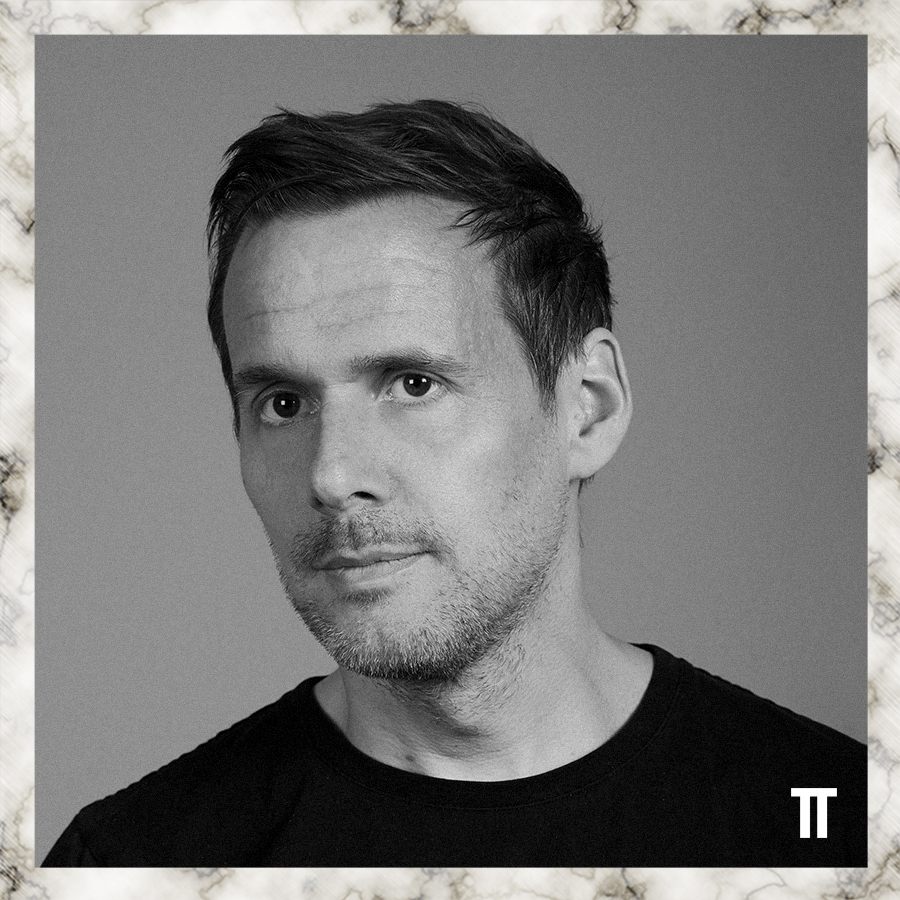
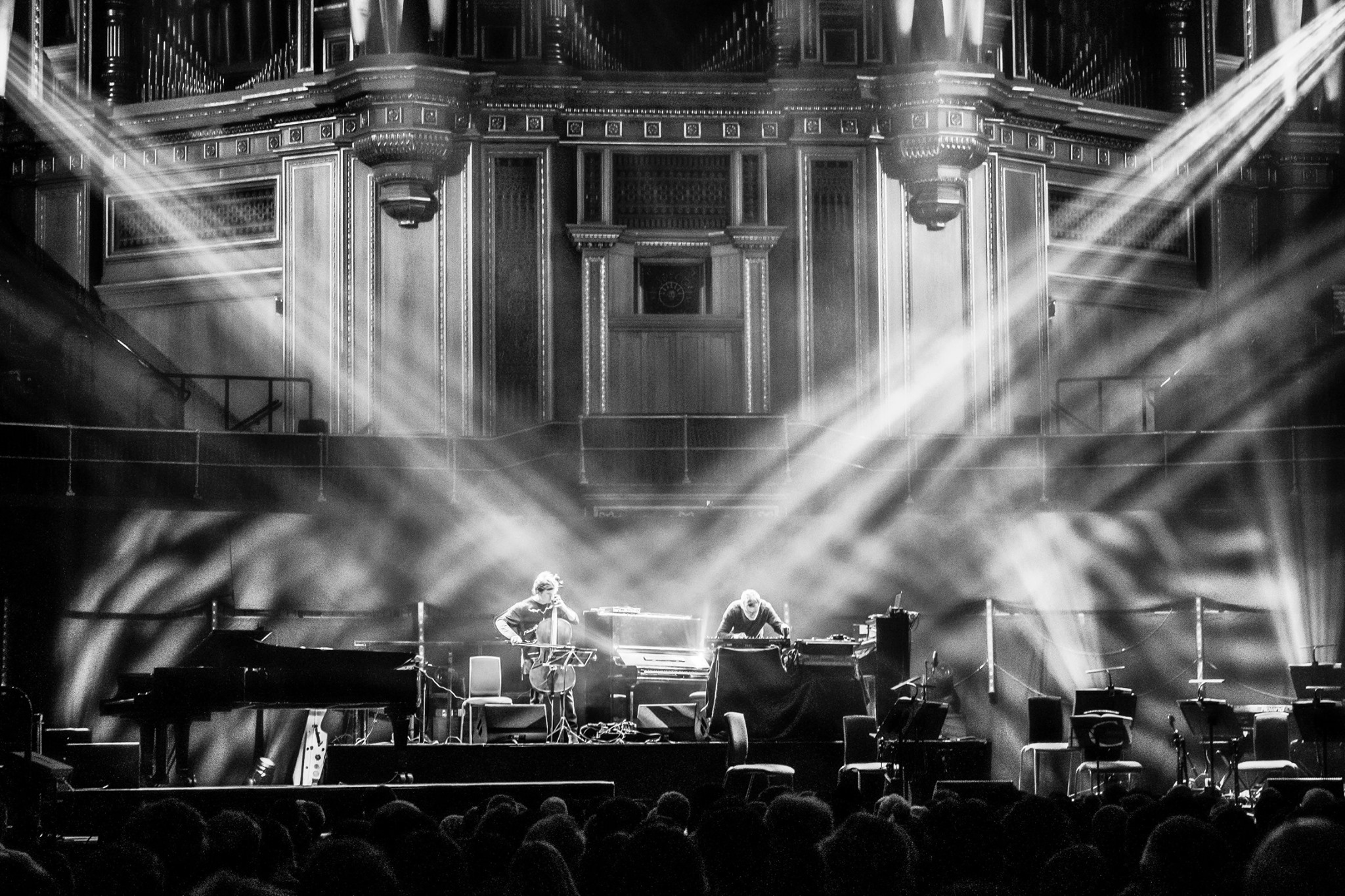
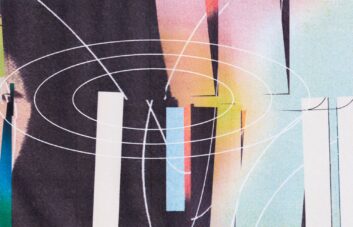
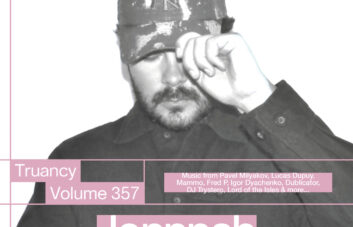
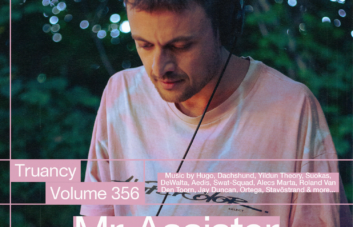
Excellent mix and interview with THE MAN! One of my favorite producers from the moment I heard him!